The South Florida/Caribbean Network has identified a prioritized list of vital signs and is developing protocols and field monitoring for at least eleven of them. The protocols for colonial nesting birds, coral reef community, coral reef water temperature, mangrove soil surface elevation tables, Florida reef fish, and Virgin Islands reef fish have been approved and published. Protocol documents for forest vegetation, lobster, mangrove-marsh ecotone, periphyton, and seagrass are in development. Some vital signs remain unfunded at this time.
Marine Systems
-
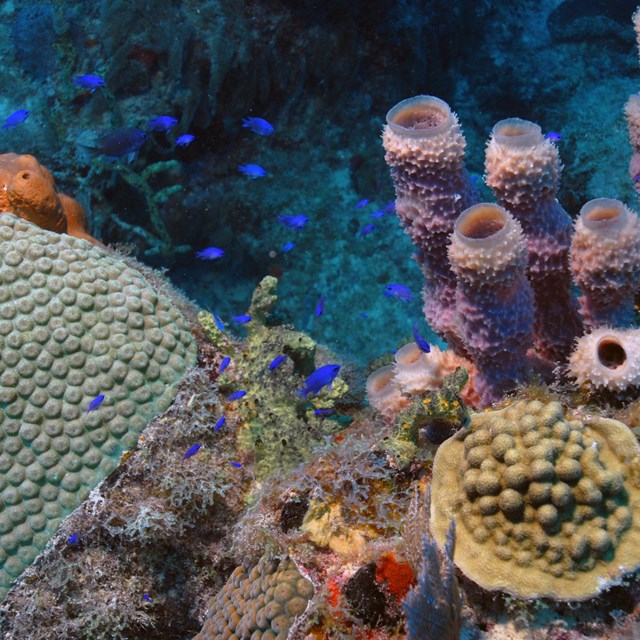 Coral Reef Communtities
Coral Reef CommuntitiesCoral reefs support incredible diversity and play a vital role in supporting fisheries, nursery areas, tourism, and shoreline protection.
-
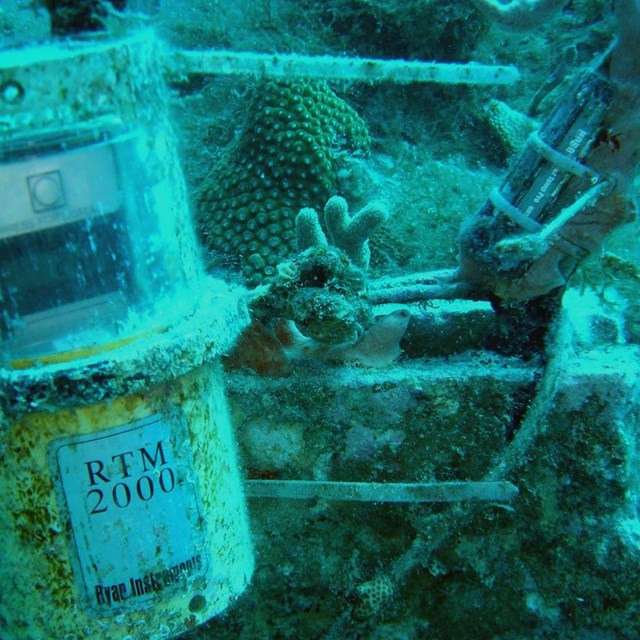 Coral Reef Water Temperature
Coral Reef Water TemperatureWater temperature is collected as a basic water quality parameter and can help us understand coral bleaching and disease outbreaks.
-
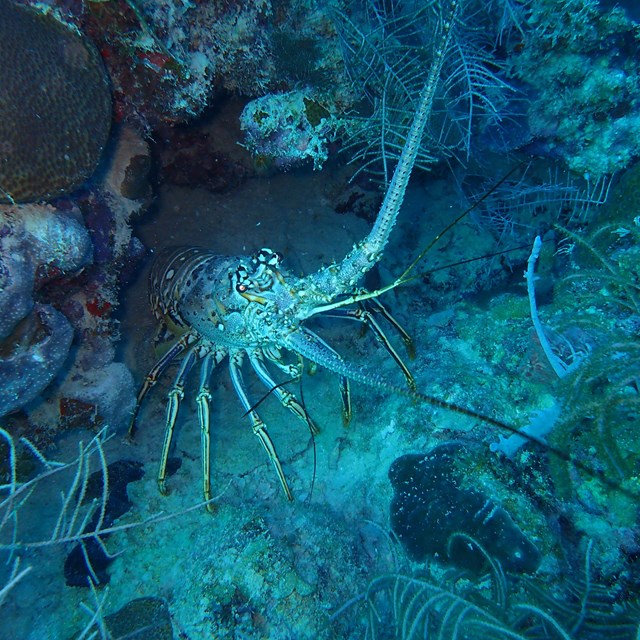 Lobster
LobsterThe Caribbean spiny lobster is one of the most economically important fisheries in both Florida and the U.S. Virgin Islands.
-
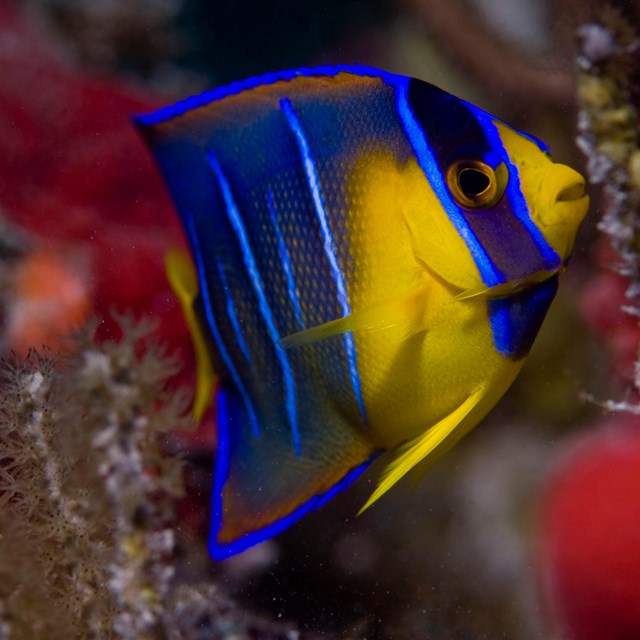 Marine Fish Communities
Marine Fish CommunitiesThe health of reef fish communities has a large impact on the economies of south Florida and the U.S. Virgin Islands.
-
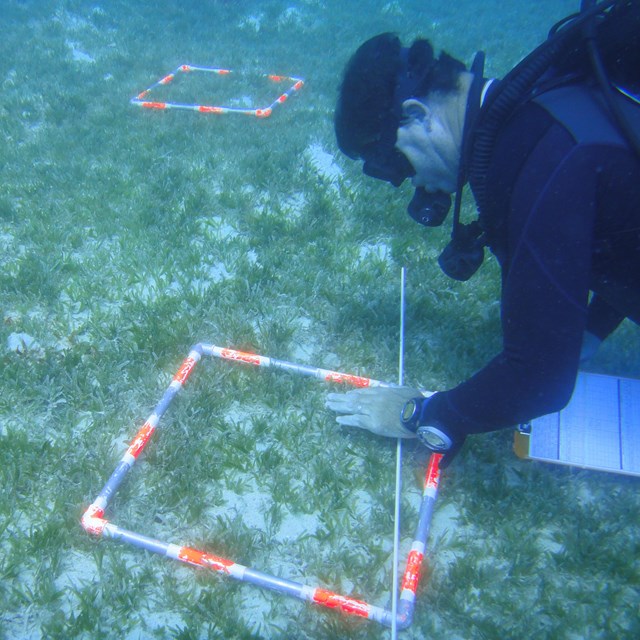 Seagrass
SeagrassSeagrass habitats serve as nursery areas for many marine species, supporting a variety of vertebrate and invertebrate life.
Terrestrial Systems
-
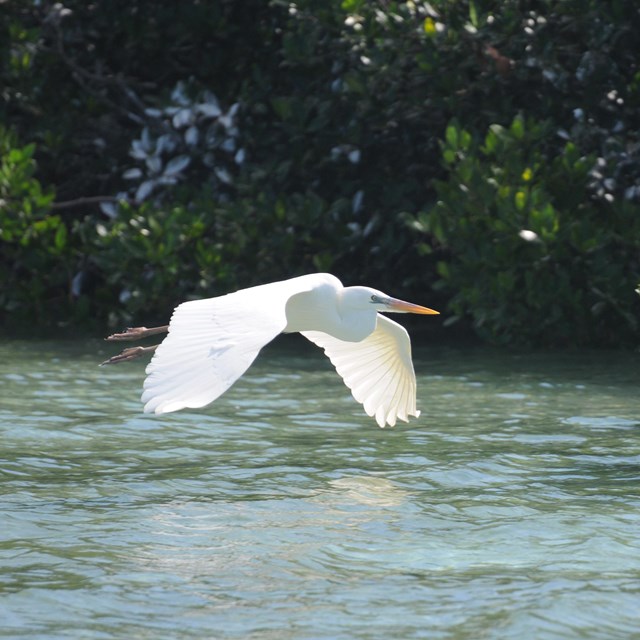 Colonial Nesting Birds
Colonial Nesting BirdsSeveral bird species nest in colonies on offshore islands and serve as important indicators of aquatic ecosystem health.
-
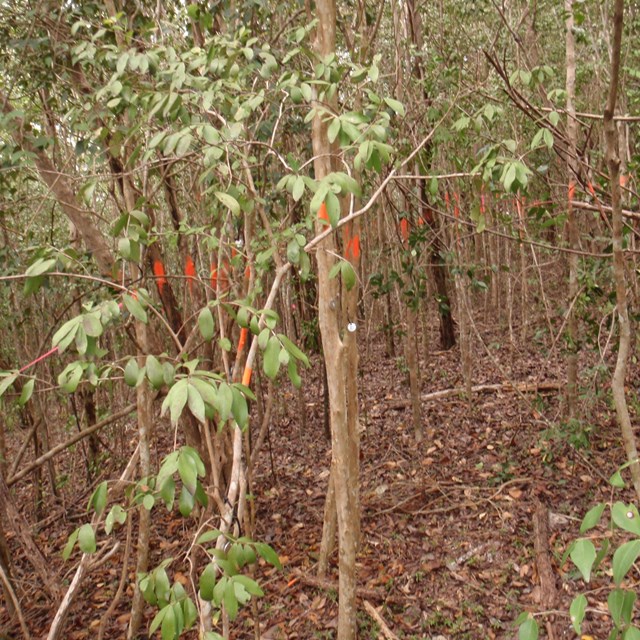 Forest Vegetation
Forest VegetationEstablishing forest plots can help determine if forest communities are stable and resilient through time.
-
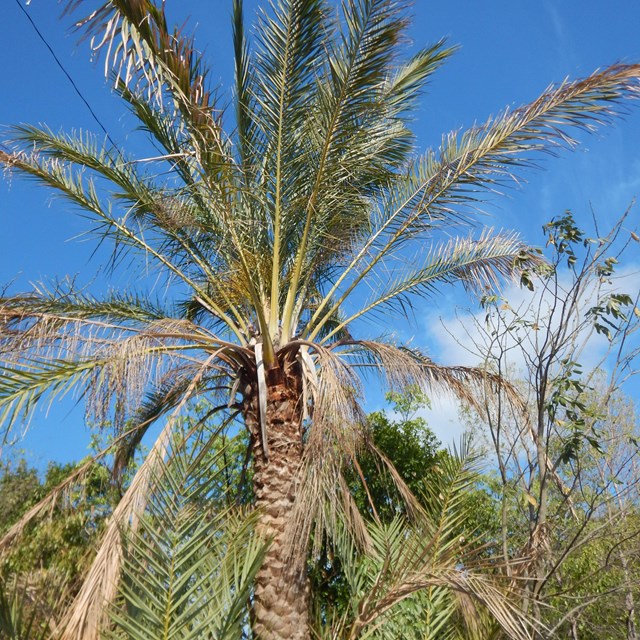 Invasive Exotic Plants
Invasive Exotic PlantsInvasive plants are a serious threat to the ecological integrity of our parks, so we monitor for new invasions to reduce their impact.
-
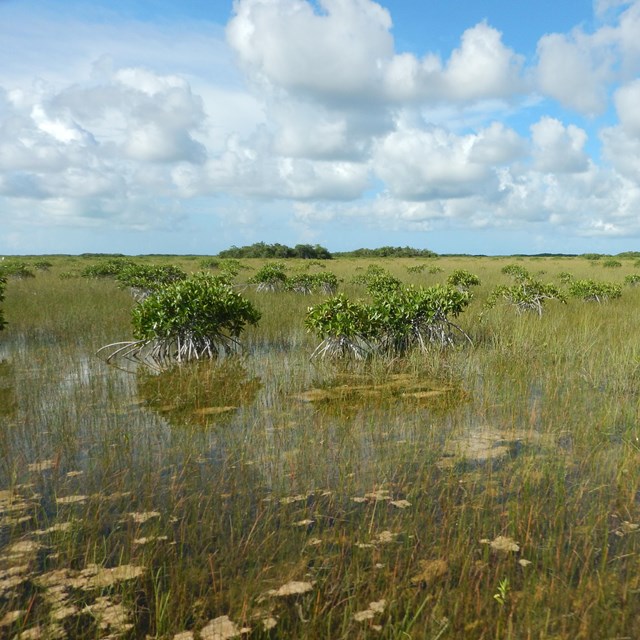 Mangrove-Marsh Ecotone
Mangrove-Marsh EcotoneEcotones are transition zones between habitats and may move in response to changes in climate or hydrology.
-
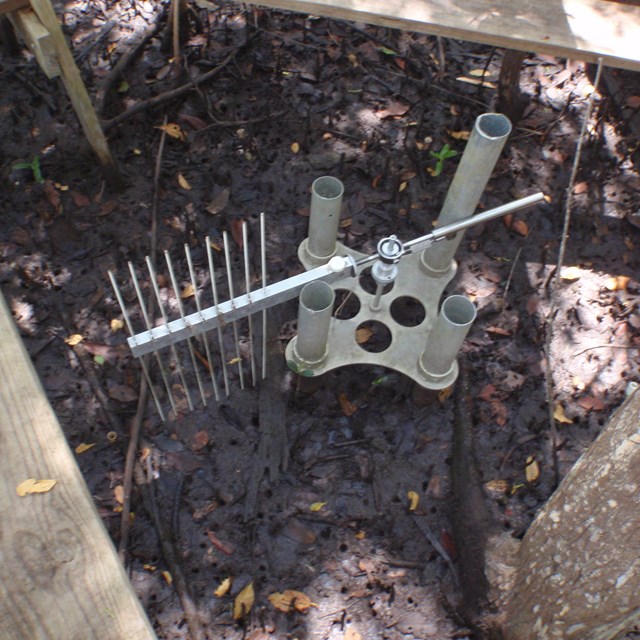 Mangrove Soil Surface Elevation Tables
Mangrove Soil Surface Elevation TablesMonitoring the rate of change in soil elevation helps us predict the ability of mangrove forests to regenerate.
-
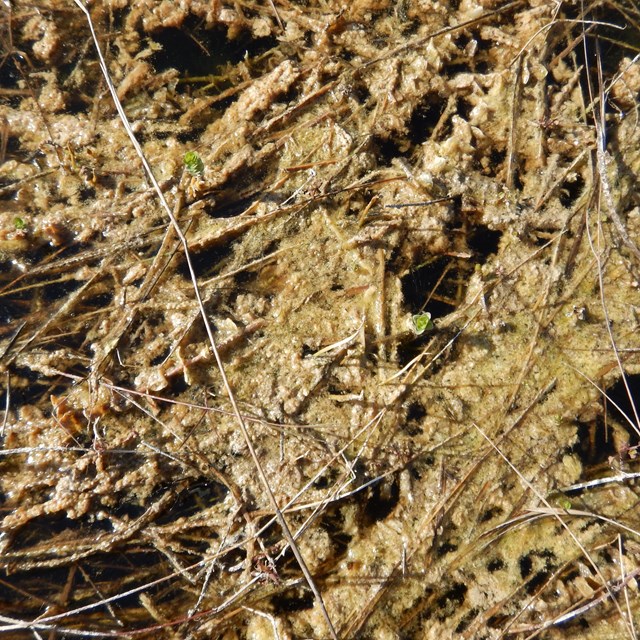 Periphyton
PeriphytonPeriphyton is a fundamental part of the food web as the primary food source for small consumers, including fish and invertebrates.
Last updated: October 20, 2020
